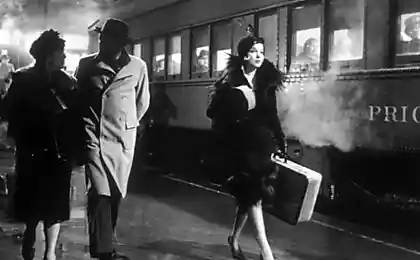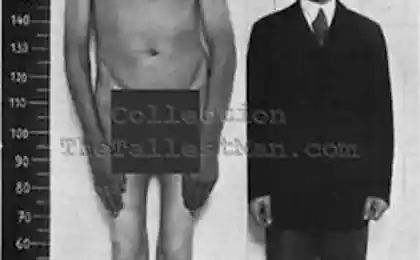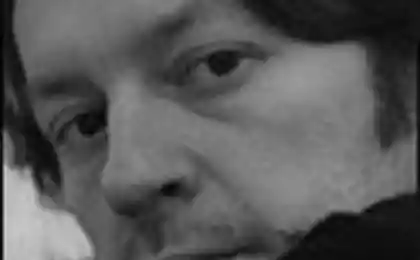388
It's complicated: the five best documentary films of Adam Curtis
Eighteen million eight hundred eighty eight thousand seven hundred fifty four
Documentary filmmaker Adam Curtis dedicates himself to the deep analysis of political, economic and cultural phenomena in the world of the twentieth century. It can be suspected in commitment to the ideas of the left or attributed to the preachers of conspiracy theories — each judge the extent of their beliefs, one thing is clear — his paintings are able to teach anyone to question everything. The century of the self
The Century of the Self, 2002
Considered the main work of Curtis in four parts reveals how the ideas of psychoanalysis Sigmund Freud, not least with the support of his relatives have evolved throughout the twentieth century, each with its transformation while an effective tool to influence the masses in a democracy.
The film is primarily about the Sigmund's nephew — Edward Bernays, who became one of the pioneers of technology public relations. In the era of free personality was that with skilful handling of tools of influence on the subconscious of the person vulnerable to various above. It concerns relatively harmless — such as how to make women finally stop Smoking is considered shameful, announcing the cigarette as a torch of freedom, to an absolutely striking in their promotional power of information warfare that could lead to a military coup in the whole country.
Fascism once again stressed the idea of Freud that man — not that other, as bent on aggression and destruction selfish creature, and that if you don't provide these emotions proper control and not steer them the right direction, they can break, leading to disastrous consequences. For these reasons, in the middle of the century is born "national mental health act" and the ideal of the new man as the master of his passions.
The modern ideal is born and opponents to the ideas of Freud, who expressed the opinion that it is hard keeping these aspiring to freedom of emotions leads a person to unhappiness and violence. After the hippie era the appearance in the 80-ies the method of focus groups, a practice that allowed each private opinion to be heard and to influence the surrounding reality, first in the sphere of production of goods, and later in politics, we have come to the state when "like everyone else, we want to be different", a wide range of products and services that meet seems to be the whole possible spectrum of consumer desires, able to Express every single private identity, the final triumph of selfishness.
The power of nightmares
The Power of Nightmares, 2004
What Curtis says in this cycle, it can shock — categorical confidence he brings to the court the idea that the terrorist organization "al-Qaeda" never existed, but the opinion about its real threat shared by the whole world, is a myth, born of the efforts of the two, it would seem, in all the opposing forces: the Western neoconservatives and radical Islamists. This idea, however, for all three series of the cycle is supported by new facts and good logical reasoning.
We pass way from the late 40-ies of XX century, when the ruling regimes based on the belief in the optimistic ideology of a better world, ceased to have weight in society, in principle, ceased to believe in anything. Continue to keep masses of people under control was made possible only by fear of some external enemy that faith in any ideals are still preserved. The enemy of the Western world first became the USSR, and now global terrorism. The Islamists, seized the opportunity of publicly proclaiming its exaggerated strength, did not contradict the statements of politicians, thus jointly giving birth to a terrible imagination, and to this day holding the society in subjection.
The trap: what happened to our dream of freedom
The Trap: What Happened to our Dream of Freedom, 2007
This trilogy a certain way unites the ideas expressed by Curtis earlier in the series "Century of the self" and "Power of nightmares", and brings to his latest work — "all watched Over by machines of loving grace". The Director again uses built on the paranoia of politics that has evolved in the years of the Cold war, a violent democratic revolution in the third world countries, ruling in the modern world the idea of natural selfishness and shows that the notorious the ideal of human freedom developed in Western society, is unattainable, because every time its implementation requires measures far from those that could be called democratic, involving people in this new and emerging hazards.
The company got rid of the power of ideologies, which helped the elites to manipulate them, and appealed to mathematics, helps to assess things rationally, but this twist just made humanity even more proprietary, tightening into infinite service numbers. And what is freedom anyway? Does it exist? And if it still exists, do we know what to do with it? The idea of negative liberty dragged the Western countries into a vicious circle, pushing them to invade third world countries to give the population of a liberal democracy, which ultimately had only selfish goals and implemented through violence.
All watched over by machines of loving grace
All Watched Over by the Machines of Loving Grace, 2011
The last work of Curtis reveals the latest theories of the meaning of human life. Some of these views appeared in the first place with the development in the second half of the twentieth century computer technology. Born from the womb of noble aspirations and hopes of the naive, the idea of computers as a chance to build a harmonious self-regulating society through a chain of disappointing historical events (such as the collapse of the egalitarian hippy communes in America, the civil war in the Congo, the collapse of the us economy under Clinton), into a explanation of the congenital sinfulness of human existence.
Modern scientists — the followers of Darwin's theory brought a beautiful equation describing the dominant influence in all life processes of the gene — analogs of electronic computers, which were to be the salvation for the people, and turned their rulers. Special attention deserves the soundtrack: the story of the death of the idea of computers as machines of grace and love unfolding the hits of Stereo Total and Donna summer.
Like a kiss
It Felt Like a Kiss, 2009
A 54-minute work Curtis created in collaboration with Punchdrunk, looks like a quintessence of all his previous statements about the American dream. The speech itself this time was not necessary: the film is suitable from the archive of stock footage, arranged in a dynamic narrative, dancing to classic American pop hits.
The title for this work Curtis took from the song of the Crystals — about a girl who, despite the fact that she was a battered lover, never left him, believing that thus he expresses his love. So America, realizing his dream, caresses with its brilliance, it hurts like a foreign enemy, Americans themselves, bringing them to a state of psychosis and destroying hope. A spectacular installation, and expertly chosen music, It Felt Like a Kiss becomes a really strong experience. published
Source: theoryandpractice.ru























